There are moments when you don’t want advice. You don’t want to explain what’s wrong. You don’t even want to be “cheered up.” You just want someone there — silently, fully, gently.
When people can’t fill that space, dogs often can. But not just any dog. You need one that doesn’t bounce off walls or demand your attention. One that simply shares your space without making it heavier. A dog who notices your pain, even when you hide it.
Whose calm presence softens the sharp edges of your day. These dogs don’t solve your problems. But they remind you: you’re not alone. They sit through your silence, stay through your storms, and stay close enough that the world doesn’t feel so cold.
In this article, we’ll show you the calmest emotional support dog breeds — the quiet heroes who bring peace, not noise, into your life when you need it most.
Calm Emotional Support Dog Breeds
1. Cavalier King Charles Spaniel
This breed doesn’t just sit by your side — it watches, listens, and adjusts to your mood in real time. Many owners report that their Cavalier will quietly place a paw or lean in during anxious moments. That kind of emotional awareness isn’t trained — it’s instinctive.
Gentle and responsive temperament
Known for their gentle and affectionate nature, these dogs aren’t just calm — they help calm others without being intrusive. They maintain a soft presence, even in tense or overstimulating environments. Their ability to stay relaxed under pressure adds to their quiet reliability.
Well-suited for emotional support roles
Cavaliers are among the most naturally attuned emotional support animals, often recommended by therapists for individuals with anxiety or PTSD. Their consistency in behavior, paired with their empathy, creates a strong foundation for daily comfort. They don’t need to be working dogs to provide real value.
Low-maintenance, high companionship
These dogs require modest exercise and adapt easily to both active and slower-paced lifestyles, as PetMD claims. Their ability to simply sit with someone for hours makes them exceptional emotional support dogs. They’re the type of companion who helps just by being there — steady, quiet, and emotionally present.
2. Labrador Retriever
Labradors are prized not just for loyalty, but for their remarkable emotional steadiness. In high-stress households or during panic episodes, their presence remains calmly grounding.
This reliability makes them among the best emotional support choices for individuals dealing with unpredictable emotional states.
Naturally tuned to human emotions
Labs often exhibit behavior that mirrors the emotional temperature of the room, lowering their energy in somber moments and quietly engaging when needed.
Unlike breeds that withdraw under stress, they tend to remain close without overwhelming. Their supportive behavior is rooted in observation, not demand.
Trusted across therapeutic roles
Originally trained as working dogs, they’ve long held roles as service dogs for individuals with physical and psychiatric challenges. What sets them apart is their ability to perform without breaking the quiet bond they build. That duality of task and empathy is a key reason they’re widely trusted.
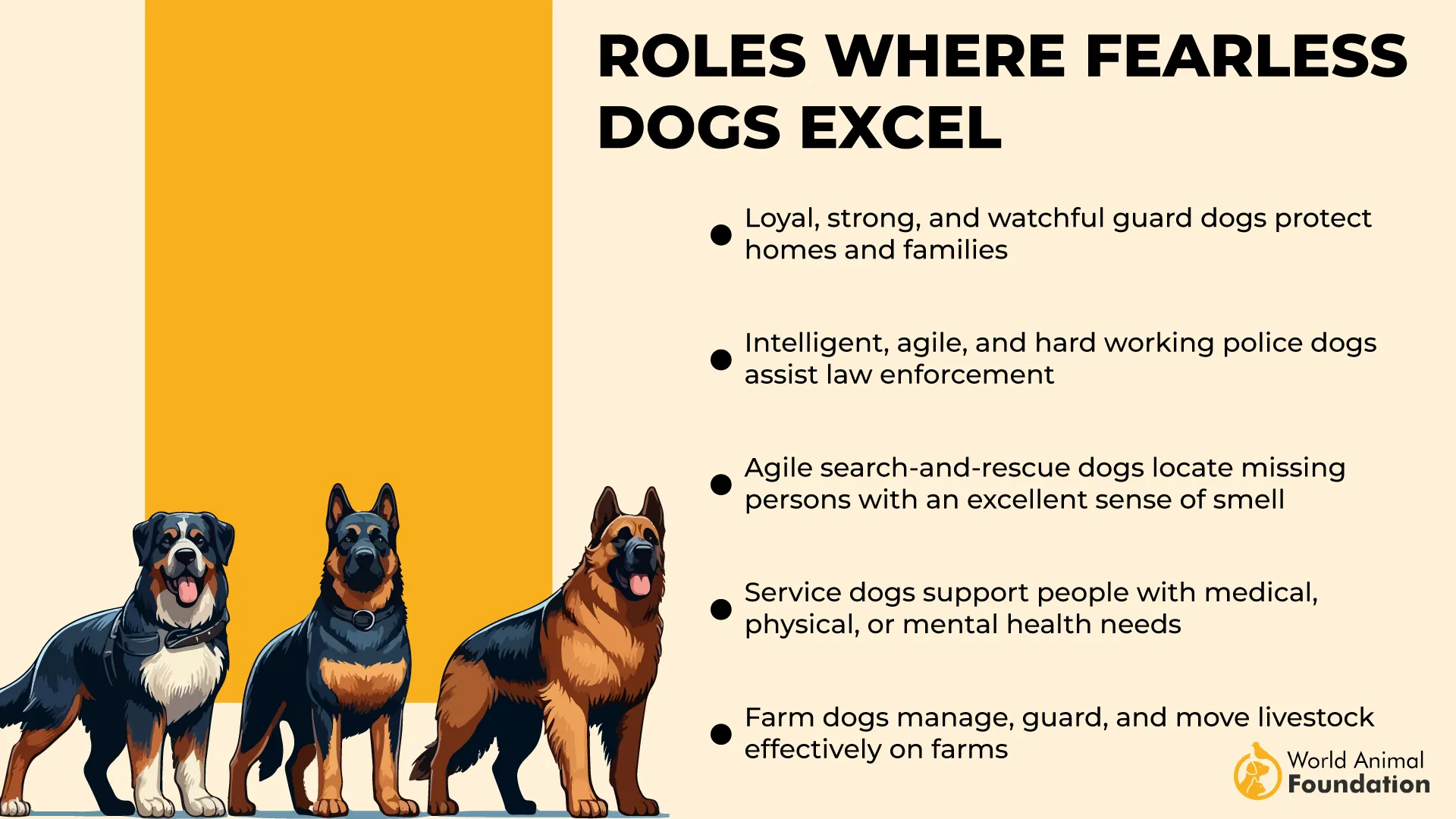
Balance between energy and calm
Although active outdoors, Labradors understand when to slow down indoors, often lying near their person with a quiet presence. This gentle nature makes them well-suited to environments where overstimulation needs to be avoided. They’re reliable, even in emotionally charged moments.
3. Golden Retriever
Golden Retrievers are known for their ability to remain calm even when the energy in a room changes suddenly. This is especially valuable for individuals with mood disorders, where stability in a companion can prevent emotional spirals. Their steadiness isn’t situational — it’s consistent across environments.
Highly responsive without being overbearing
They respond quickly to vocal tones and body language, but without crowding their person. This balance of attentiveness and space makes them great emotional support animals, especially for those who need grounding rather than constant attention. Their emotional radar is unusually precise.
Proven support in clinical settings
Golden Retrievers are frequently recommended by a licensed mental health professional for their ability to assist with anxiety and mental health conditions like depression and PTSD, as per Help Guide. They’re often included in formal support programs due to their trainability and psychological intuitiveness.
Routines that match therapeutic needs
Their preference for daily routines—structured walks, meal times, quiet evenings—can help regulate symptoms in those managing long-term mental health conditions. This natural inclination toward consistency acts as a passive support system, especially during periods of emotional unpredictability.
4. Pug

Pugs tend to sync with the daily pace of their humans, whether it’s lounging through a quiet morning or shifting moods by evening. They react to tone and body language more than commands, often adjusting without any prompt. That kind of natural alignment can be grounding for anxious individuals.
Naturally attuned to emotional energy
Pugs don’t need constant stimulation; they’re content just existing near someone. Their short bursts of energy are balanced by long stretches of stillness, making them ideal for people who need stability over excitement. It’s this steady presence that builds trust over time.
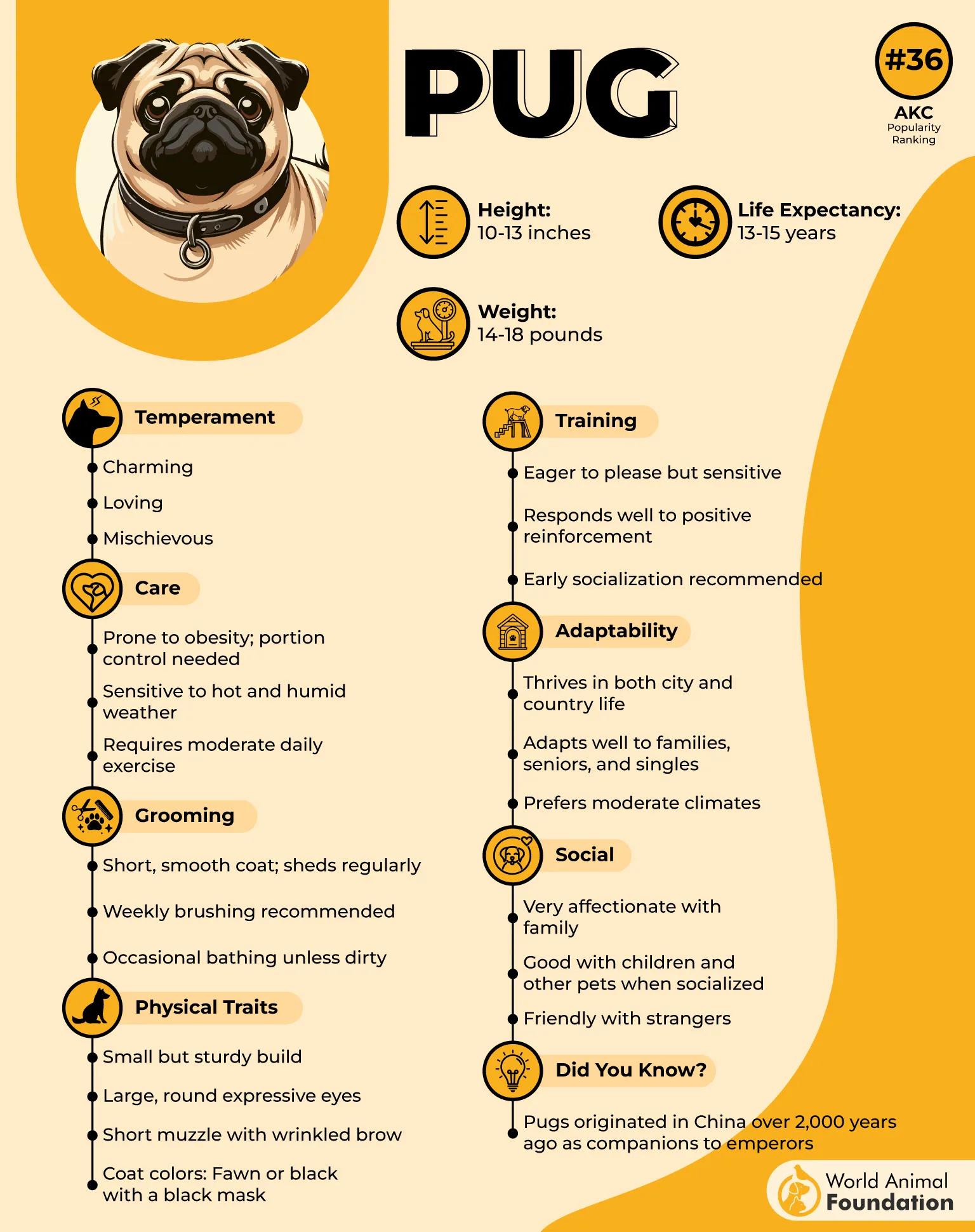
History of close human companionship
For centuries, Pugs were bred solely for the purpose of sitting close to royalty and nobility, not hunting or guarding. That genetic imprint matters. Among certain breeds, few were literally designed to be held, watched, and emotionally leaned on as much as the Pug.
Low-demand, high-affection bond
They form attachments quickly, not with dramatic displays, but through consistent proximity. Their friendly nature, paired with their instinct to be near, creates a strong, calming presence. That’s what makes them such good emotional support dogs, especially for urban or smaller living environments.
5. Bichon Frise
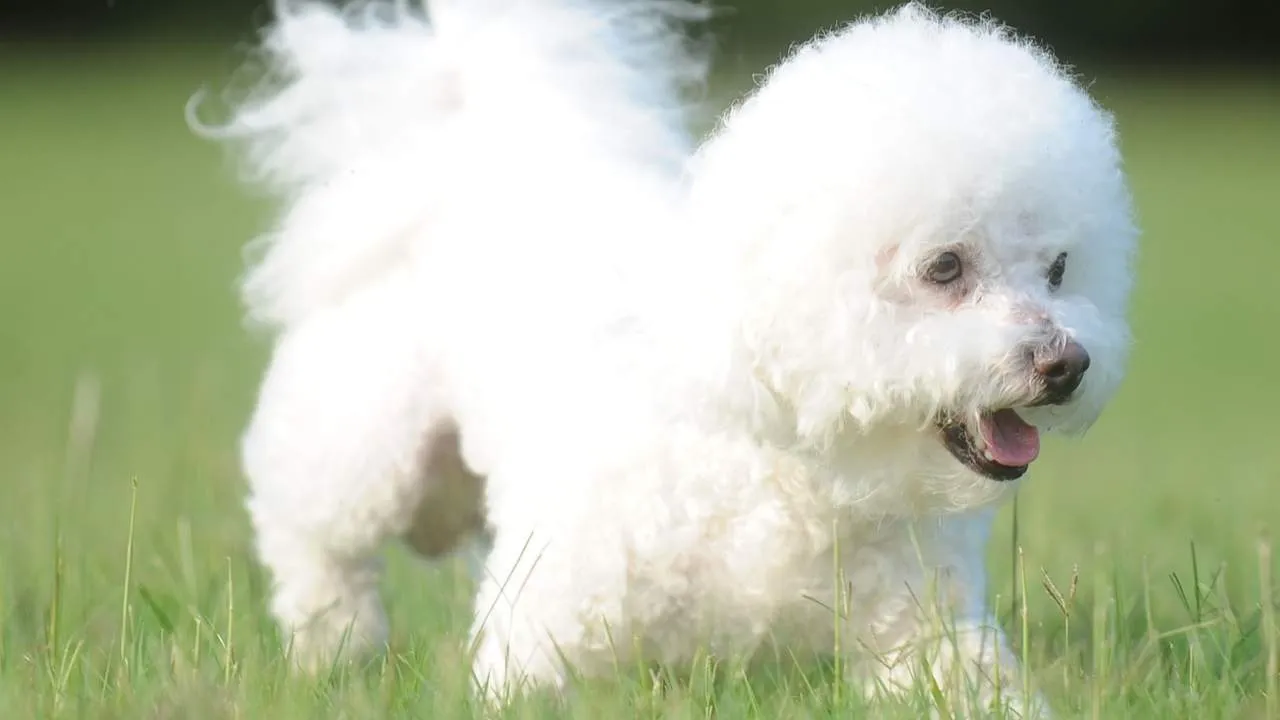
Bichons have an uncanny ability to sense small shifts in human behavior, especially during moments of distress. Their attentiveness to subtle cues makes them naturally supportive during panic attacks. They stay close without demanding attention, acting like quiet emotional buffers.
Ideal for consistent emotional presence
Because they thrive in structured environments, they can provide emotional support during unstable emotional states. Their routine-oriented mindset allows them to anchor individuals who struggle with daily unpredictability. They don’t just follow patterns — they help people feel safe within them.
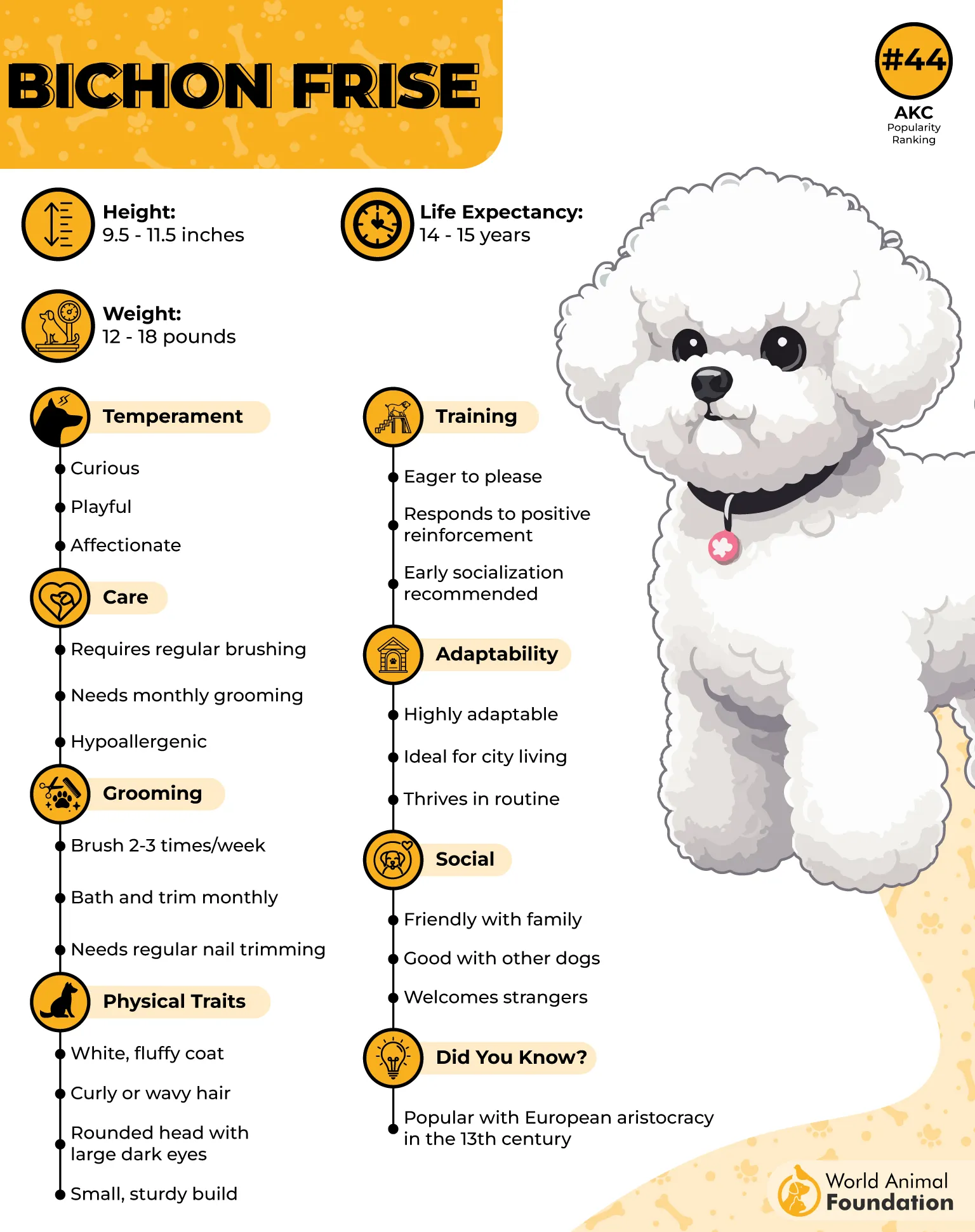
Soft personality with high adaptability
These are naturally affectionate dogs, but what sets them apart is how gently they respond to emotional tension. They adjust quickly to a person’s pace, whether it’s silence, crying, or needing a break. Their calmness isn’t passive — it’s responsive and tuned in.
Dependable in families and therapy settings
While they’re often seen as companion pets, Bichons are also excellent family dogs that adapt to homes dealing with mental health issues. They’re often chosen for therapy roles involving children or seniors due to their stable temperament and soft, approachable demeanor.
6. Maltese

For individuals who experience intense or unpredictable mental health symptoms, the Maltese offers a quiet, consistent presence without overstimulation. Their small size allows them to rest in your lap or follow you from room to room without feeling intrusive. They provide reassurance through soft contact and silence.
Steady behavior across changing moods
Maltese dogs have remarkably consistent energy levels that don’t spike easily, making them especially helpful during anxious or depressive cycles. They tend to adjust their behavior to match your state, moving slowly when needed and offering stillness without prompting.
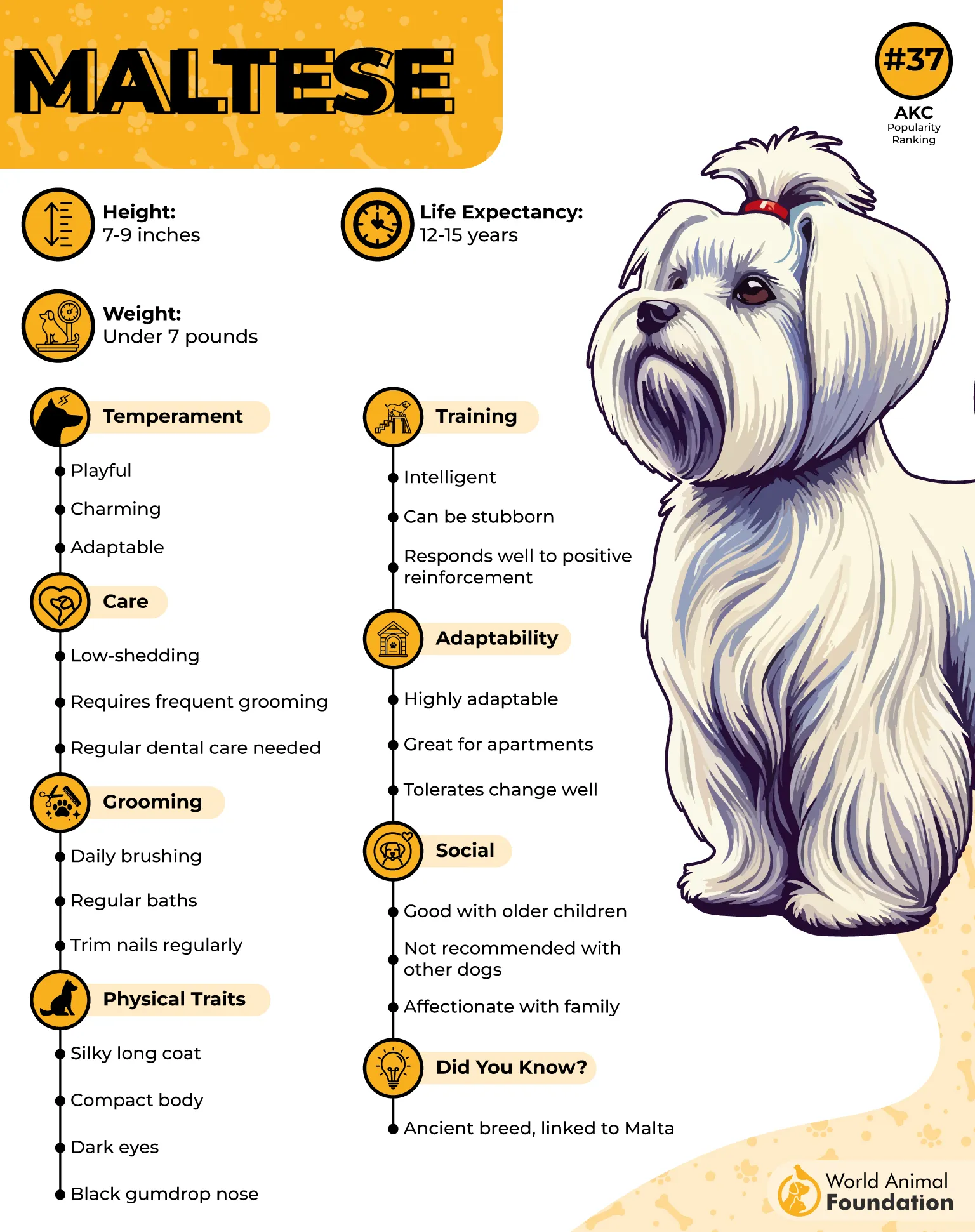
Deep-rooted emotional connection
Originally bred for companionship centuries ago, the Maltese wasn’t designed to herd or guard — it was made to stay close. This purpose shapes the way they bond: they seek to be near, not for attention, but simply to remain connected. It’s a quiet loyalty that stands out among other breeds.
Ideal for close emotional pairing
Because of their friendly and affectionate natures, Maltese dogs are often the right dog breed for individuals living alone or in need of soft companionship. They don’t require a lot of stimulation, yet they remain alert and aware, always available for subtle emotional shifts.
7. Shih Tzu

Shih Tzus are often described as “lap Velcro” — they instinctively seek out touch and settle into stillness the moment they feel skin contact. Their deep eye contact and unhurried movements create a grounding presence. They naturally read emotional cues without being reactive.
Perfect match for compact routines
This breed is ideal for those who live in limited living space and seek a steady, calming rhythm throughout the day. Shih Tzus require very little stimulation to remain balanced. Their compact size pairs with a steady temperament, which makes transitions and travel less overwhelming.
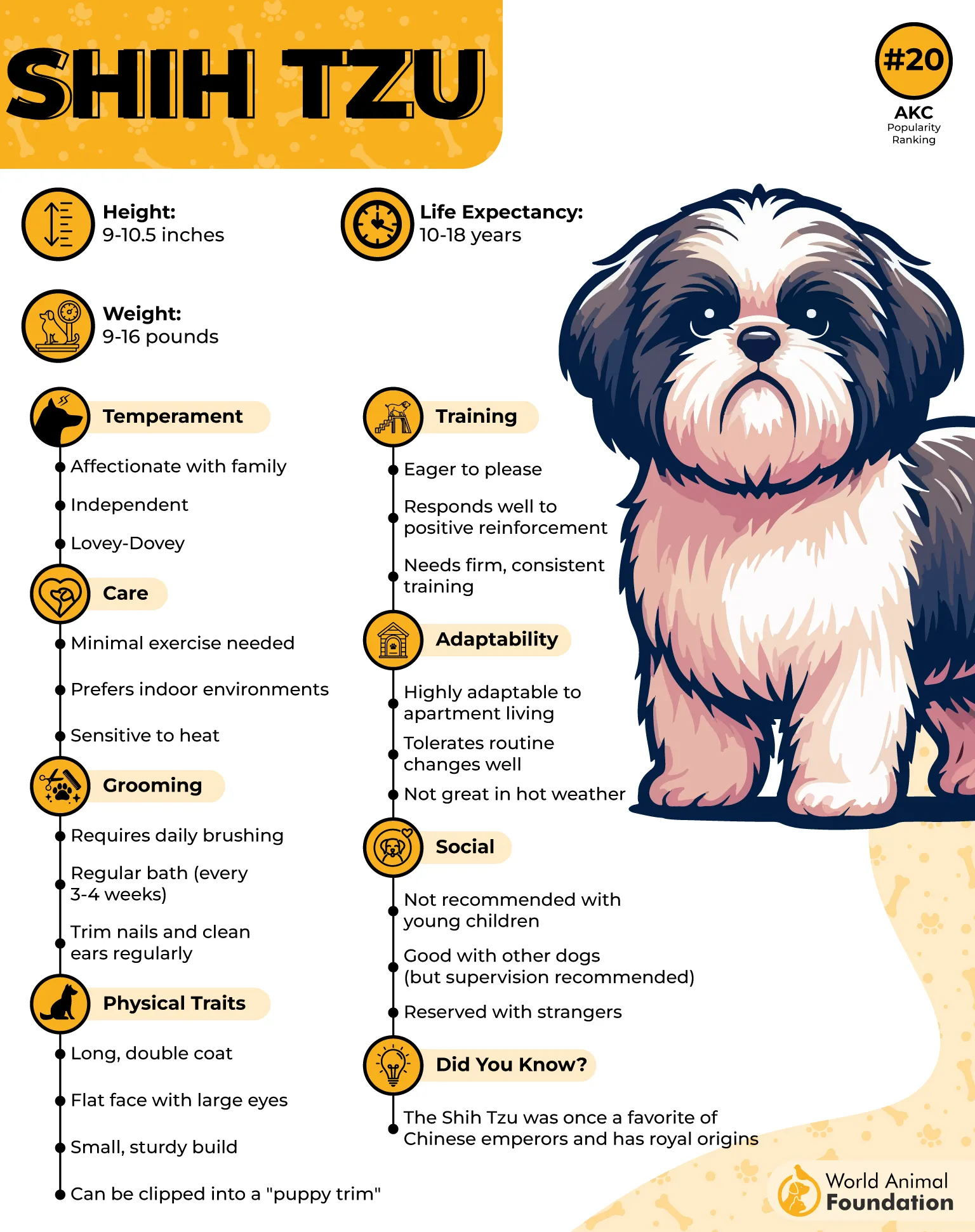
Emotionally consistent and self-contained
Shih Tzus are incredibly reliable in emotional settings — they don’t overreact or need constant engagement, as stated in All Shih Tzu. That’s what allows them to provide support without becoming overwhelmed. Their calm demeanor stays intact even when their owner is visibly distressed or agitated.
Quiet awareness of human emotions
Instead of responding to commands or routines, they tend to respond to emotional needs — sitting close during tough moments, shifting closer with subtle movements. There’s no demand for attention in return. That low-key intuition is what separates them from more expressive companion breeds.
Conclusion
At the heart of emotional support lies a kind of presence that words can’t replace. These calm, attentive dogs aren’t here to entertain or perform — they’re here to be.
While service animals often require specific training to complete tasks, emotional support dogs rely more on their ability to sense emotions and respond in real time. That’s why certain dog breeds, especially those with a friendly and gentle nature, are so valued for this role.
They don’t just sit beside you — they ground you. Whether you’re dealing with anxiety, post-traumatic stress disorder, or other mental health disorders, these breeds tend to stay consistent, quiet, and emotionally available.
Not every dog is an ideal emotional support dog, but the ones we’ve shared in this guide are excellent emotional support dogs in both instinct and temperament. Choose based on your emotional rhythm and their unique, different personality traits.


